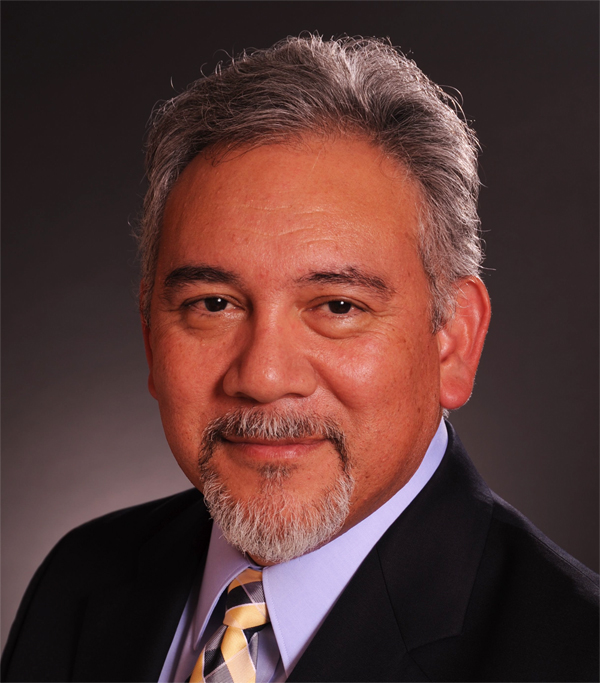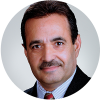
Michael A Sesma, Ph.D.; Chief, Postdoctoral Training Branch, Division of Training, Workforce Development and Diversity, National Institute of General Medical Sciences (NIGMS)
What inspired you to become a scientist?
My interest in science became focused when I was in junior high school. My five-year-old brother was diagnosed with a craniopharyngioma as the cause of persistent headaches. His diagnosis, surgery, treatment, and recovery were miraculous and stimulated my interest in biology, medicine, and neuroscience. The physicians who were involved were mostly young, enthusiastic and dynamic who were serving in the U.S. Navy during the Vietnam war. Our family got to know them very well and they were the role models for what I hoped to do.
What gained your interest in the NIH?
As an undergraduate and graduate student, I learned about how the research was supported and funded and about the purpose of the National Institutes of Health. As a graduate student and postdoc, I was supported by NIH research grants and began to be educated in the NIH and Federally funded research world. As a first-generation college graduate and person from an underrepresented background, I was clearly aware of the lack of racial and ethnic diversity in science. After a 10-year faculty career in two research institutions, I decided to change career paths by seeking opportunities to support research administration and to work on programs that would enhance the diversity of the biomedical research workforce. I began to apply for positions at NIH that might allow me to pursue both interests and was fortunate to be selected for a health scientist administrator position that would allow me to do both.
What is your personal view on mentoring, and what have been some of your mentoring accomplishments as a scientific leader here at the NIH?
Mentoring is an essential element in any profession. In advancing a career in science it is indispensable both for research accomplishments and the social interactions that can facilitate success. As a graduate student, postdoc, faculty member and health scientist administrator I have had numerous opportunities to mentor, guide and advise individuals at all levels of science education and training. As a faculty member at the University of Missouri-St Louis (UMSL), I was a founding member of the Hispanic Latino Association that sought to develop a network for students, faculty, and staff at the university. As a member of the School of Optometry faculty, I participated as a mentor and advisory committee member for the Health Career Opportunity Program and Engelmann Scholar Research program for undergraduates. I was also a founding member of the graduate program in physiological optics in the School of Optometry. At NIH in addition to my role as a scientific review administrator and program officer, I advised applicants and grantees on an individual and group level. As I developed a grant portfolio in the Division of Genetics and Developmental Biology for two consecutive years (1998-99) I had the highest percentage of first-time grantees/young investigators of grant portfolios at NIGMS. I served as treasurer of both the NIH Hispanic Employee Organization and the HHS Hispanic Employee Organization. At NIMH I served as Chief for the Research Scientist Development Program in the office for Special Populations, intending to develop talent at various academic levels of undergraduate and predoctoral students, postdoctoral researchers and faculty at the full range of institutions that NIMH supported. I also served as program officer for career and training awards in the NIMH Division of Developmental Translational Research.
As Chief for the Postdoctoral Training Branch at NIGMS I have overseen institutional and individual training and career development awards, particularly those focused on individuals in making the transition from postdoc to faculty careers. This has also involved reconceiving all of our training programs as vehicles for enhancing the diversity of the workforce in biomedical science. I was the lead on developing the Innovative Programs to Enhance Research Training R25 (IPERT) that supported programs that combined research and professional development short courses and workshops, structured mentoring and outreach and dissemination. The most recent effort I have participated in is the Maximizing Opportunities for Scientific and Academic Independent Careers (MOSAIC) Program that will support the MOSAIC K99/R00 and a MOSAIC Institutional Award (UE5) with the goal of providing support to enhancing the diversity of underrepresented individuals making the transition from postdoc to independent faculty at research-intensive institutions.
In all of my positions, I have had the opportunity to learn from and mentor and advise colleagues, students, staff, administrators and leaders in their various roles. I have been the recipient of mentoring as much as I have been able to mentor and co-mentor others. I continue to learn and practice lessons in mentoring and expect that will continue in my career.
Why is diversity important for science?
Diversity is crucial to science, both in terms of the ideas and concepts within a discipline but also in terms of the people and communities who do science. Intelligence, creativity, and passion are not confined to a small group or community of practitioners. Neither is a scientific perspective or how to ask questions. One approaches a problem or question with ideas shaped by values and social and cultural experiences in addition to formal education.
Do you have a story idea for us? Do you want to submit a guest blog? If it's about equity, diversity, or inclusion, please submit to edi.stories@nih.gov.
For news, updates, and videos, follow or subscribe to EDI on: Twitter, Instagram, Blog, YouTube.







